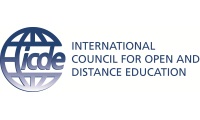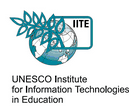UNESCO – ICDE – IITE
This website combines the efforts of three institutions: UNESCO, ICDE and UNESCO IITE. Universidad Internacional de La Rioja (UNIR) works with the three of them in an integrative way, thanks to the UNESCO Chair on eLearning, the ICDE Chair in Open Educational Resources, and the UNESCO Institute for Information Technologies in Education (UNESCO IITE), of which UNIR is a delegation for Latam and Southe-Europe:
In 1945, United Nations Educational, Scientific and Cultural Organization (UNESCO) was created in order to respond to the firm belief of nations, forged by two world wars in less than a generation, that political and economic agreements are not enough to build a lasting peace. Peace must be established on the basis of humanity’s moral and intellectual solidarity.
UNESCO strives to build networks among nations that enable this kind of solidarity, by:
- Mobilizing for education: so that every child, boy or girl, has access to quality education as a fundamental human right and as a prerequisite for human development.
- Building intercultural understanding: through protection of heritage and support for cultural diversity. UNESCO created the idea of World Heritage to protect sites of outstanding universal value.
- Pursuing scientific cooperation: such as early warning systems for tsunamis or trans-boundary water management agreements, to strengthen ties between nations and societies.
- Protecting freedom of expression: an essential condition for democracy, development and human dignity.
More information at: http://en.unesco.org
The International Council for Open and Distance Education (ICDE) is the leading global membership organization for open, distance, flexible and online education, including e-learning, and draws its membership from institutions, educational authorities, commercial actors, and individuals.
ICDE has consultative partner status with UNESCO and shares UNESCO’s key value – the universal right to education for all. ICDE further derives its position from the unique knowledge and experience of its members throughout the world in the development and use of new methodologies and emerging technologies.
ICDE was founded in 1938 in Canada as the International Council for Correspondence Education and today has members from over 60 countries worldwide.
ICDE’s Permanent Secretariat is in Oslo, Norway, and has been hosted by this country on a permanent basis since 1988. ICDE is supported by the Norwegian Ministry of Education and Research and by membership fees.
More information at: http://www.icde.org
The UNESCO Institute for Information Technologies in Education (UNESCO IITE) shall contribute to the design and implementation of the programmes of the Organization in regard to application of information and communication technologies in education. Hence, IITE serves a specific purpose within the fields of competence of UNESCO. It is principally programme-driven, responds to both global and country needs, is a part of an operational network of UNESCO structures and supports the achievement of the strategic objectives of the Medium-Term Strategy as well as the programme priorities of UNESCO, as approved by the General Conference.
IITE’s mission is to serve as a centre of excellence and provider of technical support and expertise in the area of ICT usage in education.
More information at: http://iite.unesco.org



